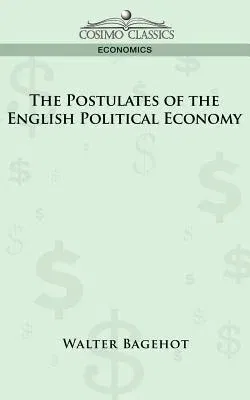Perhaps there never was anyone better fitted to show the real bearing of
Ricardian modes of reasoning on the practical problems of life, or to
bring out the fundamental unity which, in spite of minor differences,
connects all the true work of the present with that of the earlier
generation of economists. And in reading these essays we must remember
that they deal almost exclusively with one side of what he had to say.
Here he has explained the danger of assuming that the changes which are
made quickly among modern English business men have been made quickly in
other places and other times. But what he has written proves that had he
lived he would have thrown much light on the question how the rapid
changes of modern city life may help us to understand, by analogy and
indirect inference, the slow changes of a backward people. - Alfred
Marshall, from the Preface British journalist, WALTER BAGEHOT
(1826-1877), was primarily associated with the famous and influential
Manchester School of economists that emphasized radical libertarianism
in economic policy. One of the early editors of The Economist, Bagehot
stressed the need for additional valuable criteria in the field of
economics - especially cultural and social factors. He was one of the
first economists to discuss the concept of the business cycle.


